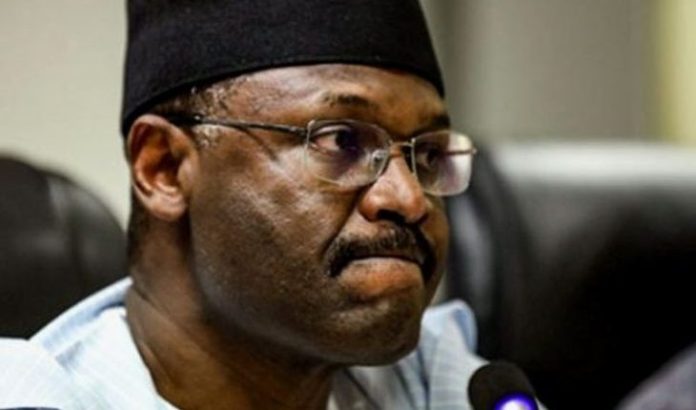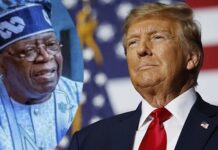By Kayode Anjorin
In 2024, the Independent National Electoral Commission (INEC) of Nigeria, led by Professor Mahmood Yakubu, made significant strides toward strengthening democracy in the country. This year was marked by groundbreaking achievements that set new standards for free, fair, and credible elections. Despite some negativity in public discourse, it became clear that Yakubu’s leadership was the foundation upon which these successes were built. The facts are simple: Yakubu should not be sacked, and the calls for his dismissal, like those from former President Olusegun Obasanjo, are wrong and unfounded. His tenure was not only a testament to his capability but also an assurance that INEC could operate transparently and impartially under his guidance.
2024 was a milestone year for INEC under the direction of Professor Mahmood Yakubu. The election process was smoother and more efficient than ever before, showcasing the commission’s ability to manage electoral challenges with professionalism. This significant progress came from Yakubu’s vision of integrating technology and bolstering the electoral framework. As many observers have noted, the election was not just an event; it was a statement that INEC, led by Yakubu, is committed to the highest standards of electoral integrity.
Critics who claimed that Yakubu should be sacked were mistaken. Yakubu’s leadership was anything but corrupt, and accusations to the contrary did not hold up against the evidence. He maintained transparency in every stage of the election, from the voter registration process to the announcement of results. His decisions and the manner in which he led the commission demonstrated that he was indeed the right person for the job. Despite the noise from some quarters, including calls for his dismissal, Yakubu’s work proved that his commitment to fairness and democracy was unwavering.
One of the most unfounded aspects of the year was the repeated calls for Yakubu’s removal. Former President Obasanjo’s insistence that Yakubu should be sacked was not only misplaced but also counterproductive. Yakubu’s tenure had seen unprecedented electoral improvements, which directly contradicted claims of inefficiency or corruption. His leadership was characterized by proactive reforms, an efficient electoral process, and the fair treatment of all political parties. The calls for his dismissal did not reflect the reality of his positive influence on Nigeria’s democratic landscape.
By focusing on the tangible improvements made by Yakubu and the successes of INEC under his leadership, it is clear that his position as chairman was well-deserved. Dismissing Yakubu would not only have undermined these achievements but also sent a wrong signal to the Nigerian people that progress could be easily disrupted by unfounded political attacks.
Throughout his tenure, Professor Mahmood Yakubu’s conduct consistently demonstrated that he is not corrupt. Unlike previous instances in Nigeria’s electoral history, where claims of misconduct were rampant, Yakubu led INEC with a focus on ethical standards and professional excellence. His transparency and commitment were evident in the way INEC handled election logistics, managed technology for biometric verification, and promptly responded to voter concerns.
Despite the negative buzz around accusations of corruption, Yakubu’s integrity was proven by the high levels of public trust and international commendations that INEC received in 2024. These endorsements came from observers, media, and civil society organizations that lauded his fair approach. His reputation as a leader who placed the interests of Nigeria above any personal or political motives was reinforced as the election concluded successfully.
As Nigeria moves forward from 2024, it is clear that Professor Mahmood Yakubu’s tenure was a turning point for INEC. The results of the year speak for themselves: under his leadership, INEC became a model of electoral reliability, inspiring confidence and trust among voters. Calls for Yakubu to be sacked were not just wrong; they were a misguided attempt to discredit the progress that had been made.
The focus now should be on continuing to build on the foundation that Yakubu laid. His leadership demonstrated that with honesty, transparency, and effective reform, it is possible to achieve electoral success. INEC’s positive outcomes in 2024 can be attributed to Yakubu’s unyielding dedication to democratic principles, making him one of the most effective INEC chairmen in recent memory.
In 2024, under the unwavering guidance of Professor Mahmood Yakubu, INEC proved that it could be an institution rooted in credibility and fairness. While some sought to discredit his work, they failed to diminish the evidence of his success. Yakubu should not be sacked, as such a move would be both unjust and detrimental to the progress Nigeria has made. He is not corrupt and has consistently shown that his loyalty lies with the Nigerian people and the democratic process. As Nigeria looks to the future, Yakubu’s legacy of transparent, fair, and credible elections will continue to inspire confidence in the nation’s electoral system.
Kayode writes from Ibadan




